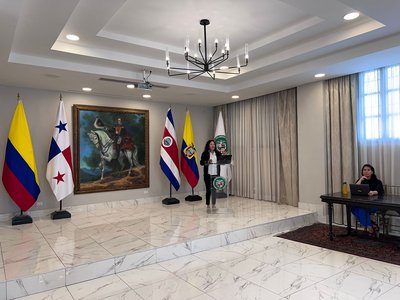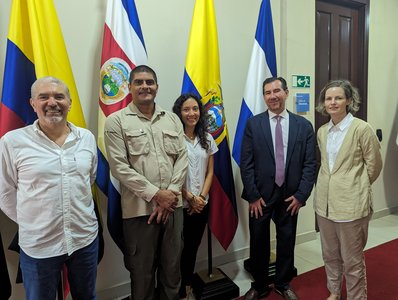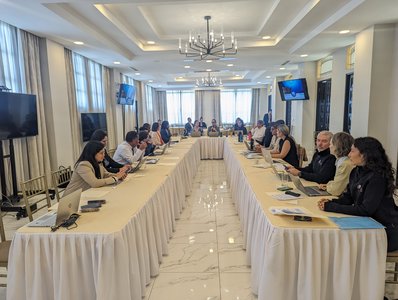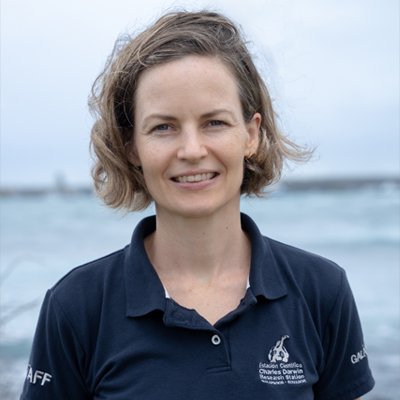Regional information session on
The Charles Darwin Foundation participates in regional information session on High Seas Treaty
Last week, on 16 May 2024, CDF, along with local Galapagos based partner Jocotoco Conservation Foundation and other regional experts, were invited to participate in an informative session for Eastern Tropical Pacific (ETP) State representatives on the new High Seas Treaty, organized by AIDA (Asociación Interamericana para la Defensa del Ambiente) and the High Seas Alliance, which took place in Panama City
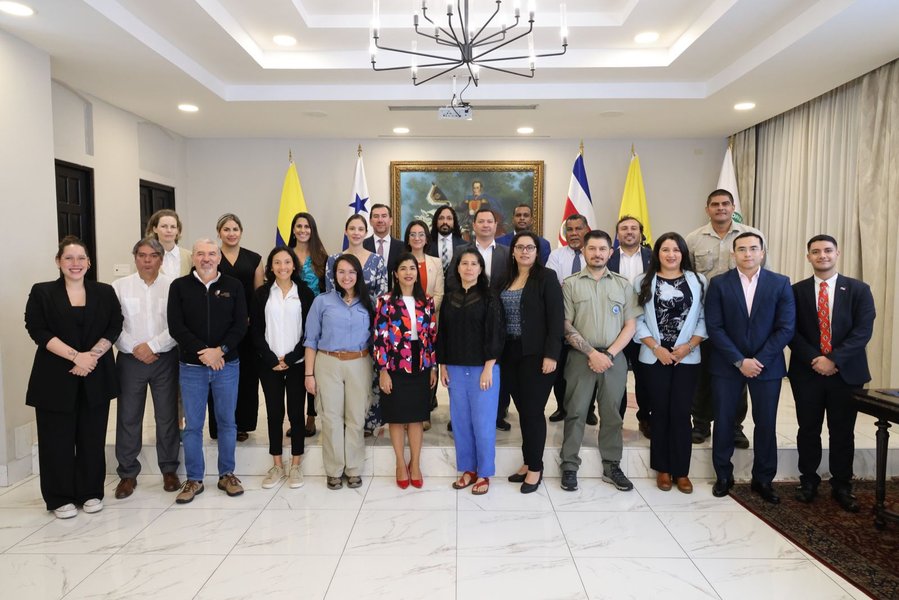
The treaty, adopted by States in June 2023, is a new agreement under the United Nations Convention on the Law of the Sea specifically focused on the conservation and sustainable use of marine biological diversity in areas beyond national jurisdiction (ABNJ). You can read more about it in a blog post by CDF’s ocean governance team here.
The treaty is limited to four focus areas: addressing the exploitation of marine genetic resources, including benefit-sharing; environmental impact assessments for planned activities in ABNJ or activities which may have negative impacts there; capacity-building and marine technology transfer; and establishing area-based management tools (ABMTs), including marine protected areas (MPAs). To date, only 1% of the high seas has been protected due to the previous lack of a comprehensive global legal framework.
Ocean governance researcher, Sarah Enright, presented on the key processes detailed in the treaty with respect to the establishment of high seas MPAs, with particular reference to implications for the ETP region. Key points included the important role of science in the preparation of proposals, and subsequent evaluations by the Scientific and Technical Body and the Conference of Parties. Furthermore, a wide consultation process is envisaged under the treaty, which includes a duty to invite adjacent coastal States and other competent bodies in the region such as Regional Fisheries Management Organizations (RFMOs) to submit their views on any proposed high seas MPA.
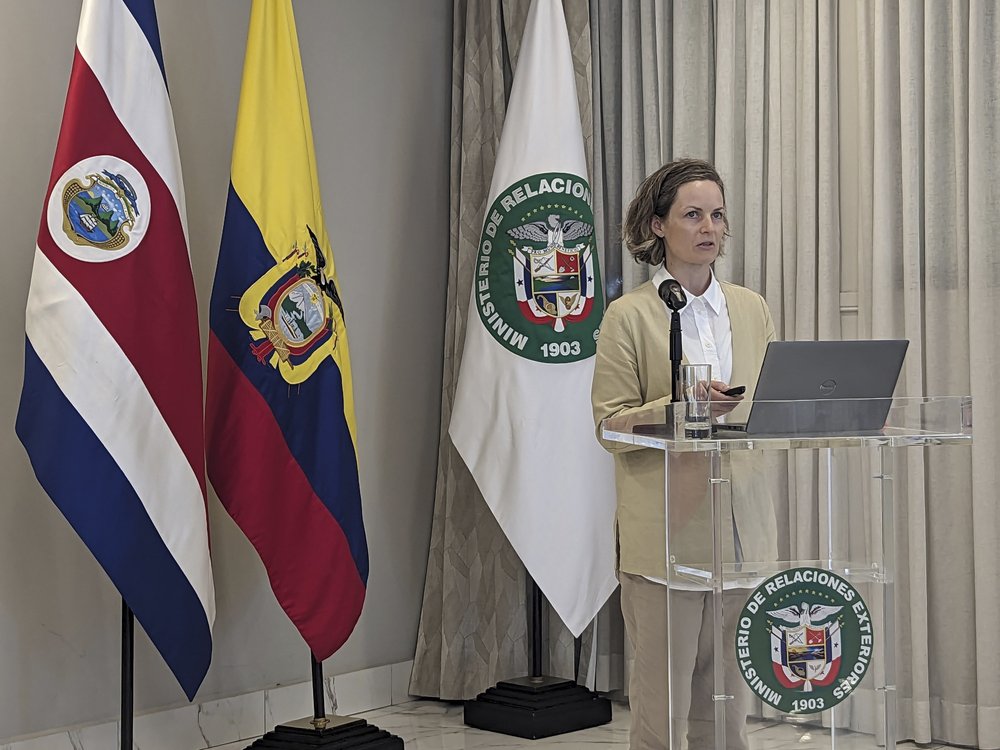
While the treaty was formally adopted in June 2023, it needs 60 ratifications to come into force. Thus far, 90 States have signed, including all ETP States (Ecuador, Colombia, Costa Rica, Panama), which indicates an intention to comply with the treaty and proceed to ratification, which is the process whereby States agree to be legally bound by it. Currently, only five States have ratified including Chile, Palau, Monaco, Belize and the Seychelles. You can follow the status of ratifications here.
